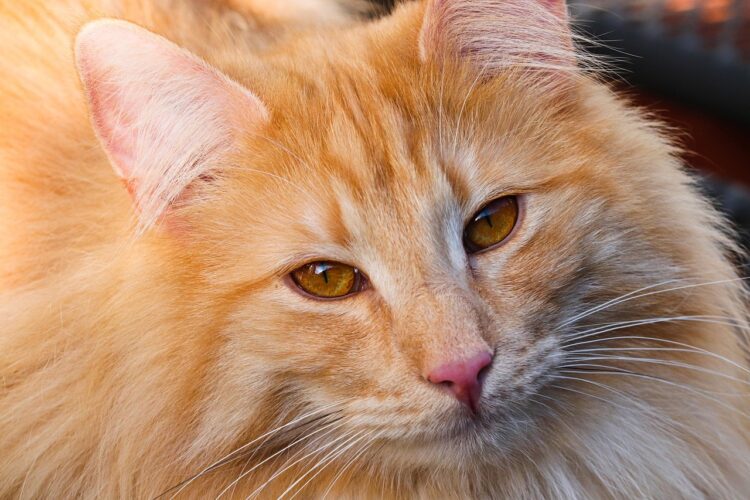
Cats can’t speak, but they’re always communicating. When a cat is unhappy, it usually shows through small changes in behavior that many people miss or brush off. Whether it’s boredom, fear, or stress, a miserable cat doesn’t just “get over it.” If something’s off at home, your cat will let you know—just not with words. Here are 15 signs your cat isn’t as happy as you think.
They Hide More Than Usual
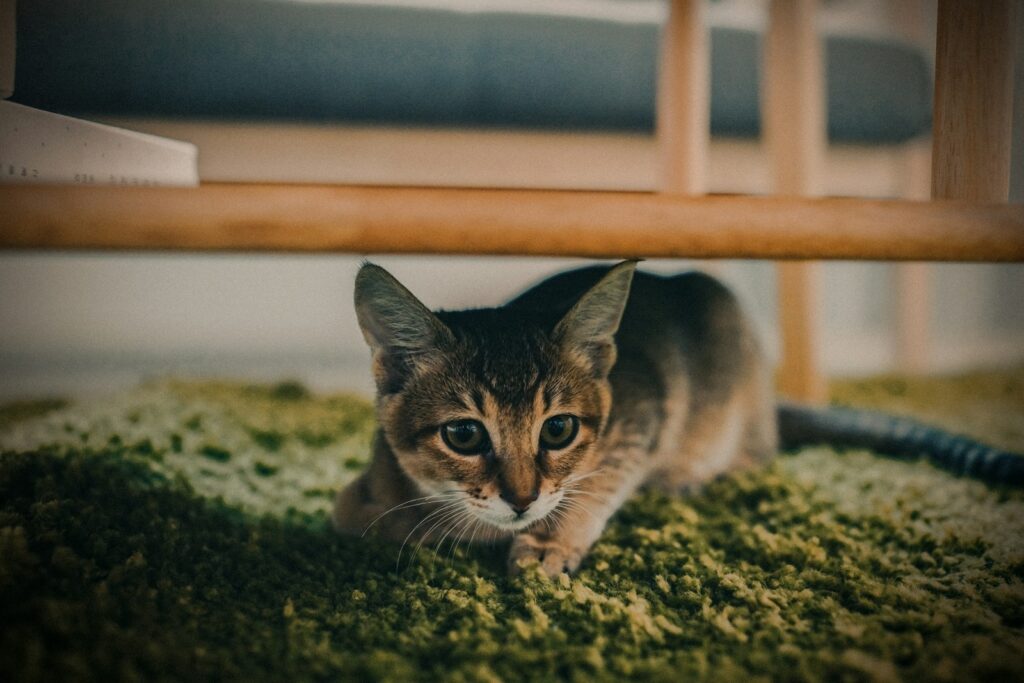
If your cat suddenly spends most of the day under the bed or inside closets, that’s not normal relaxation; it’s avoidance. Cats hide when they’re scared, stressed, or depressed. It’s their way of retreating from an environment they find too loud, overwhelming, or unpleasant. A miserable cat chooses isolation not out of shyness but because they feel unsafe or completely disconnected from what’s going on around them.
They’ve Stopped Grooming Themselves
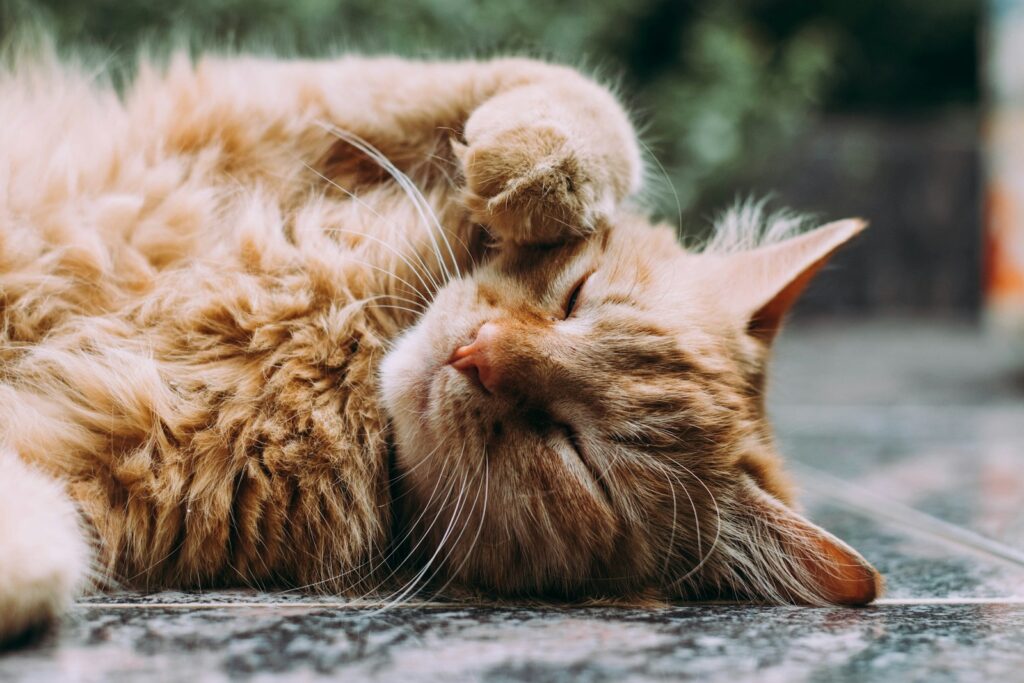
Cats are usually very obsessive about keeping themselves clean so when they stop grooming, it’s a big red flag. A matted, greasy coat isn’t just messy; it’s a sign that something deeper is wrong. Cats that feel emotionally low or stressed can lose interest in daily habits, just like humans. If your cat is letting their hygiene slide, it’s worth paying attention to their overall mental state.
They Over-Groom Certain Spots
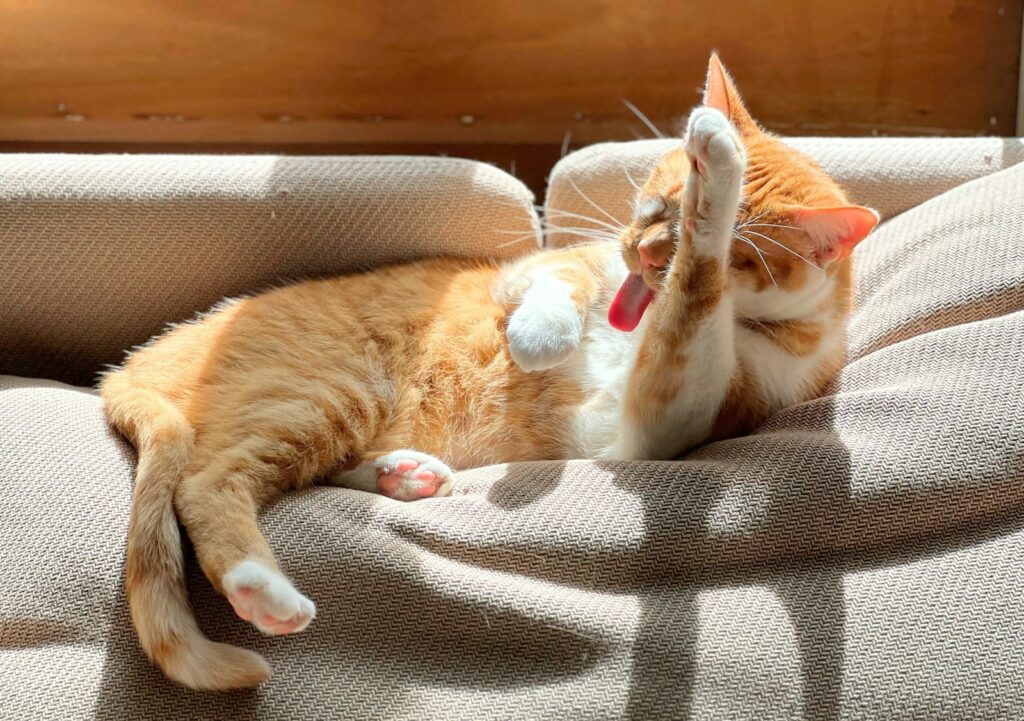
On the flip side, some cats react to stress by licking one area nonstop—usually the belly, legs, or tail. This can lead to bald patches or raw skin, and it’s because of anxiety. When your cat feels trapped, ignored, or overstimulated, grooming becomes a self-soothing habit. It’s like their version of biting nails, except it can quickly turn into a health problem if you don’t check it soon.
They Hiss or Growl Without Warning
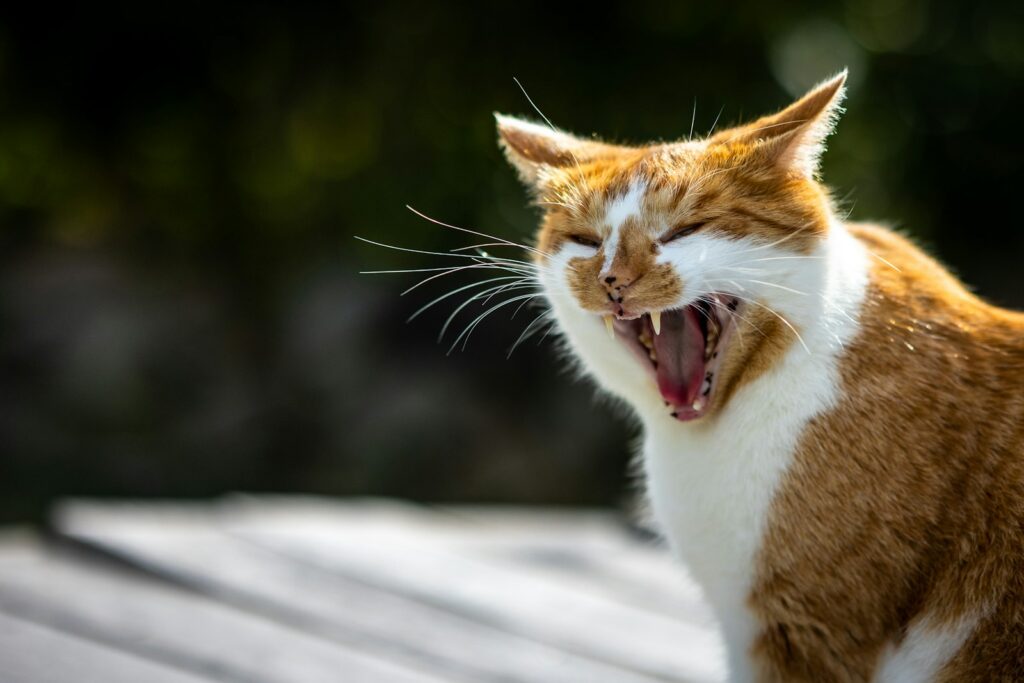
A happy cat doesn’t randomly turn aggressive. If your cat starts hissing, growling, or even swatting at you when you try to pet them or walk by, it’s a sign of chronic irritation. This usually happens when they feel misunderstood, cornered, or like their space is constantly being invaded. A cat that’s miserable starts seeing everyone, even their favorite humans, as a potential threat.
They No Longer Want to Play
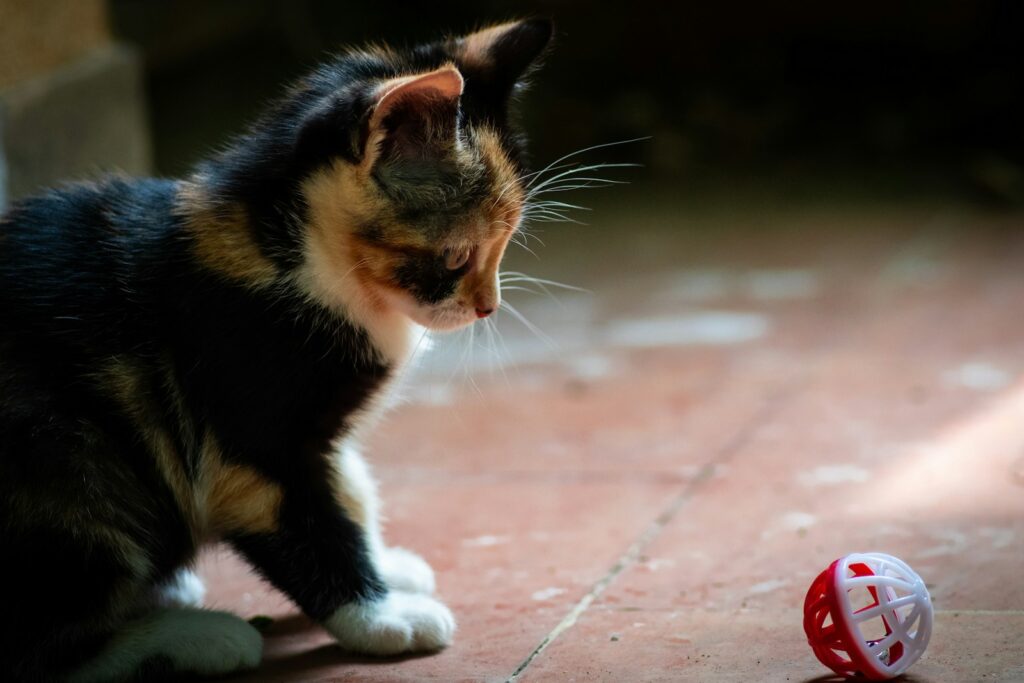
Most cats, even older ones, show interest in a favorite toy, string, or feather every now and then. If your cat no longer reacts to playtime at all, it could be a sign of emotional shutdown. Unhappy cats lose curiosity, and that includes their natural urge to chase and pounce. A bored or depressed cat stops engaging with the world around them because they simply don’t care anymore.
They Refuse to Use the Litter Box
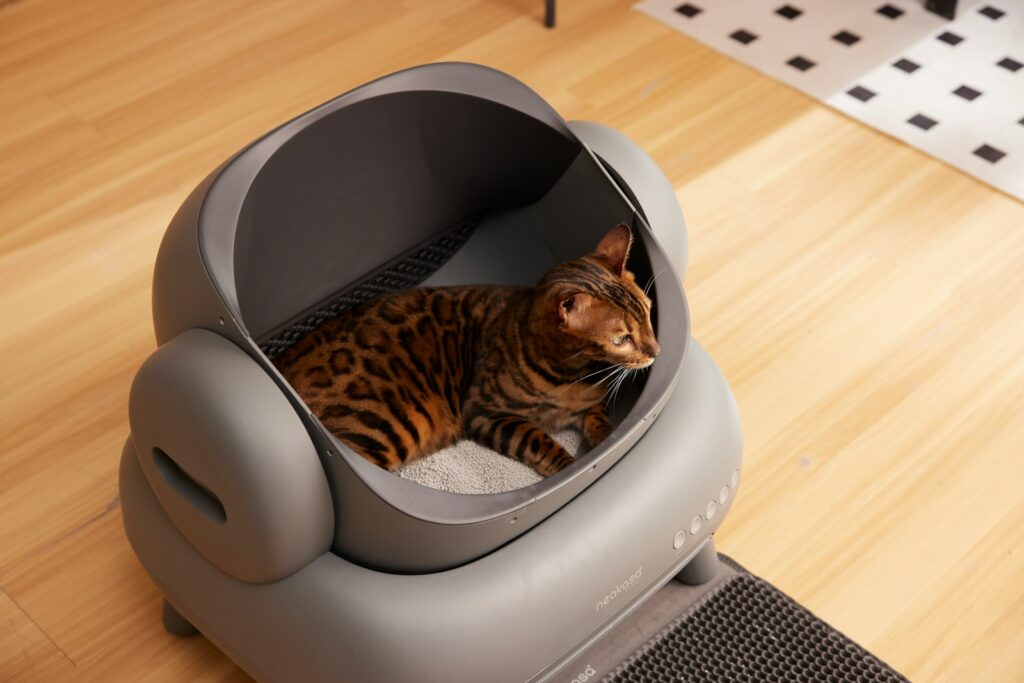
When a cat starts going outside the litter box, it’s not just about the mess; it’s also a cry for help. Felines are clean creatures, and going elsewhere usually means they’re very anxious, upset with changes in their environment, or avoiding a place they associate with stress. If your cat suddenly stops using the box, don’t just scold them—look into what might be bothering them at home.
Their Appetite Has Changed
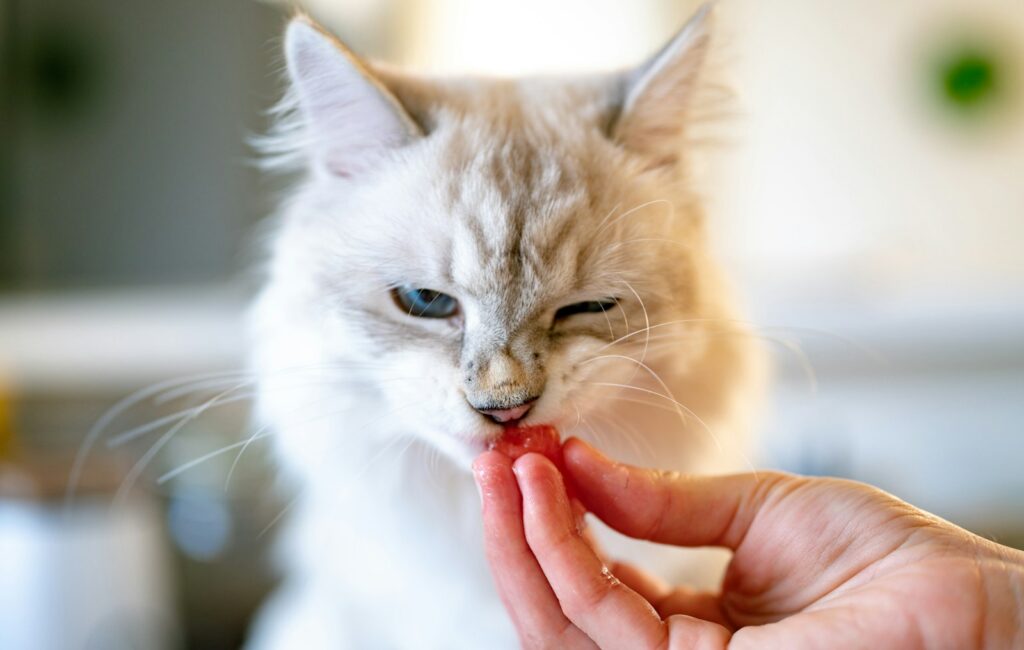
Cats that are stressed or sad might stop eating altogether or begin overeating out of boredom. A sudden change in how much your cat eats is often tied to how they feel emotionally, not just physically. If they’re skipping meals or begging nonstop, it can be their way of dealing with frustration, loneliness, or a lack of movement in their everyday routine.
They Sleep in Strange or Isolated Places
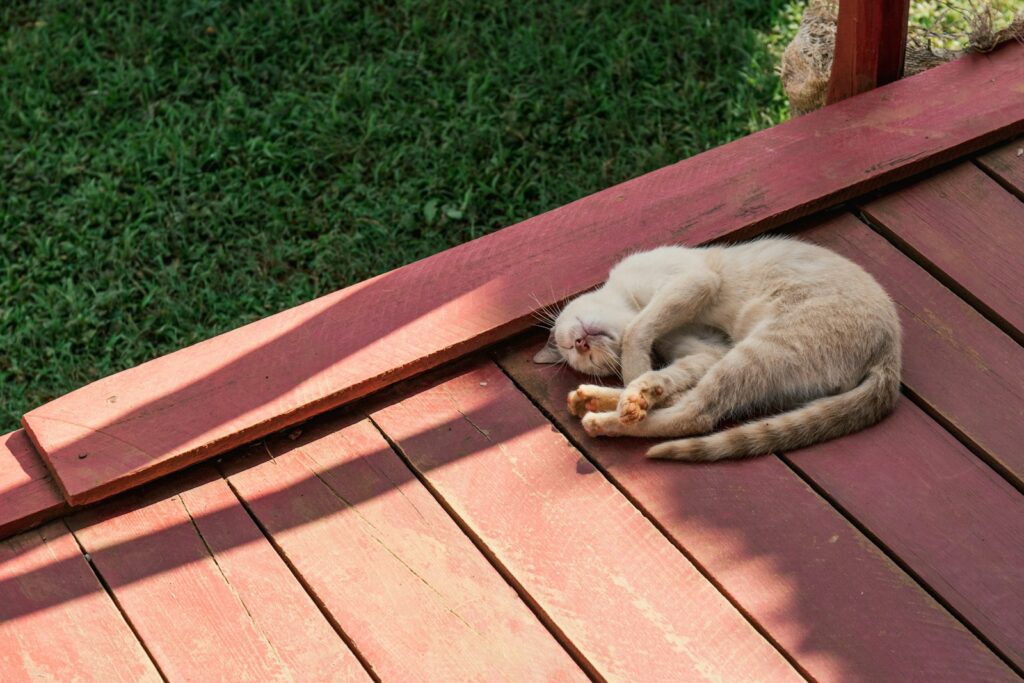
All cats love to nap, but when they stop sleeping near you or avoid their usual cozy spots, something’s not right. A miserable cat will often pick uncomfortable or unusual places to sleep—like inside cabinets or under furniture—just to escape. It’s not just about peace and quiet; it’s a subtle way of saying they’re not comfortable sharing space with you or anyone else in the home.
Their Tail Is Always Low or Twitching
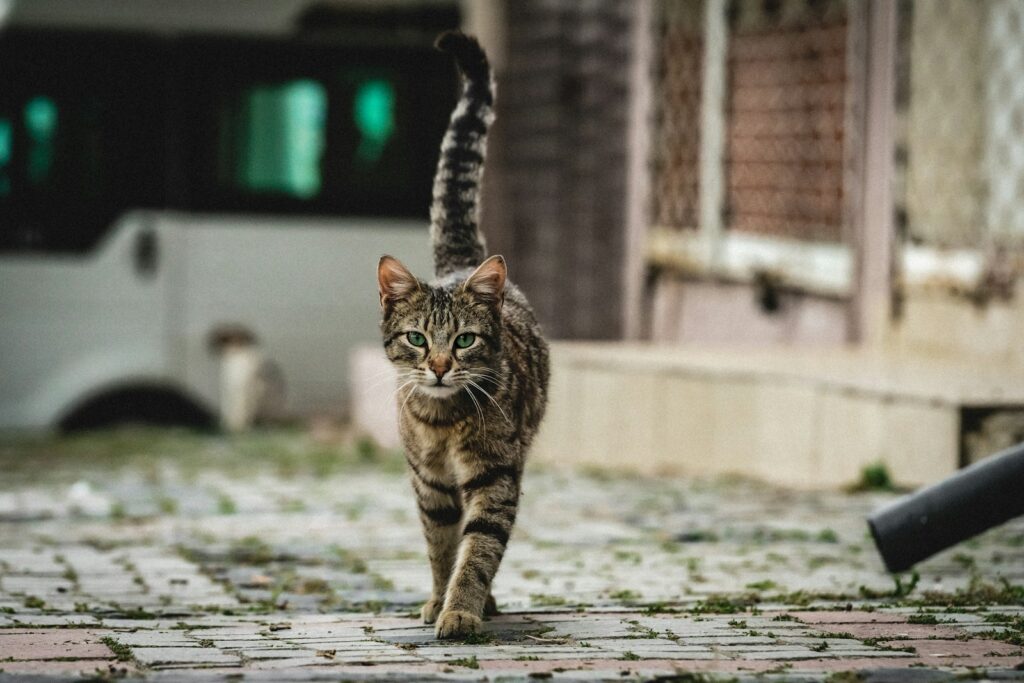
A cat’s tail can say a lot. When it’s held low, puffed up, or twitching constantly, it usually means something is wrong. Cats express unhappiness through their body language, and tail behavior is one of the first things that changes. A cat who’s content often has a soft, upright tail, while a miserable one keeps it tense, defensive, or tucked—like they’re always bracing for something unpleasant.
They Constantly Watch the Door or Windows
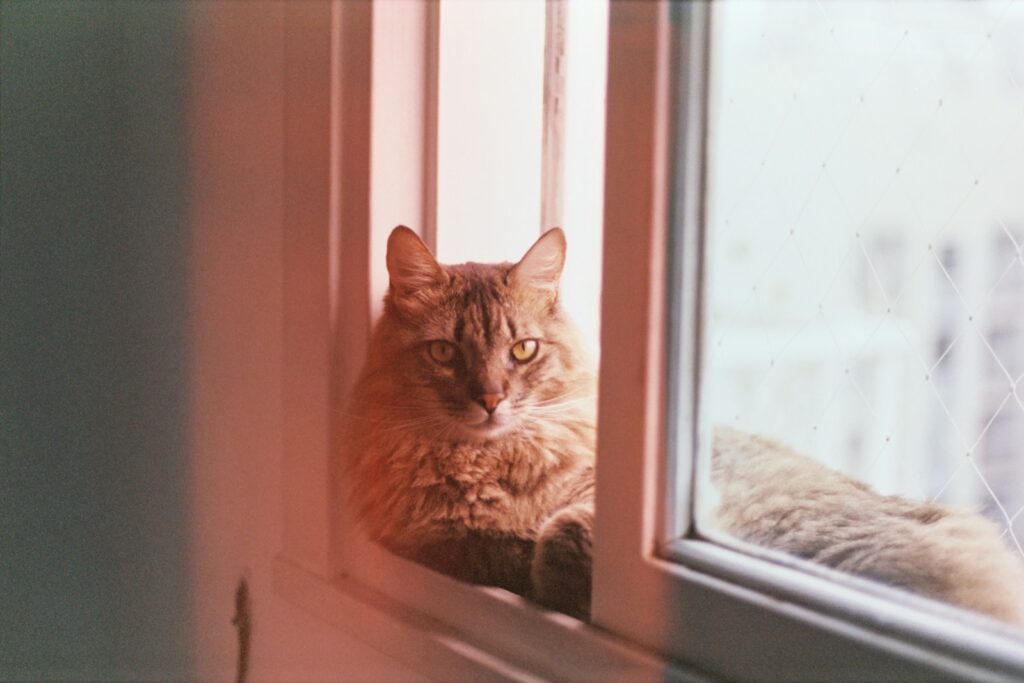
Cats love a good window perch, but if they’re always staring out like they’d rather be anywhere else, that’s worth noticing. A cat that fixates on the door or sits near it all day might be craving escape—from noise, chaos, or lack of freedom. It’s a sign that their environment feels limiting or that something indoors is making them uncomfortable, even if it’s unintentional.
They Act Out When Guests Visit
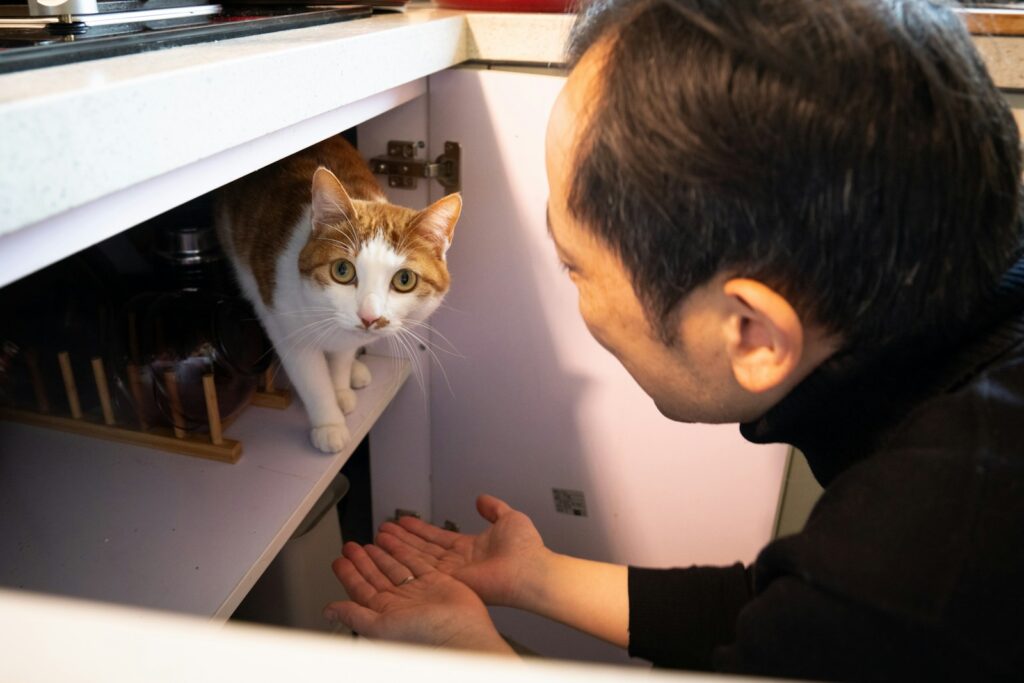
A confident cat might greet guests or at least observe from a distance. But a miserable one hides, growls, or lashes out anytime someone new enters the home. This usually means their stress level is already high, and any change pushes them over the edge. It’s not about disliking people—it’s about being stuck in an environment where they never feel at ease.
They No Longer Show Affection
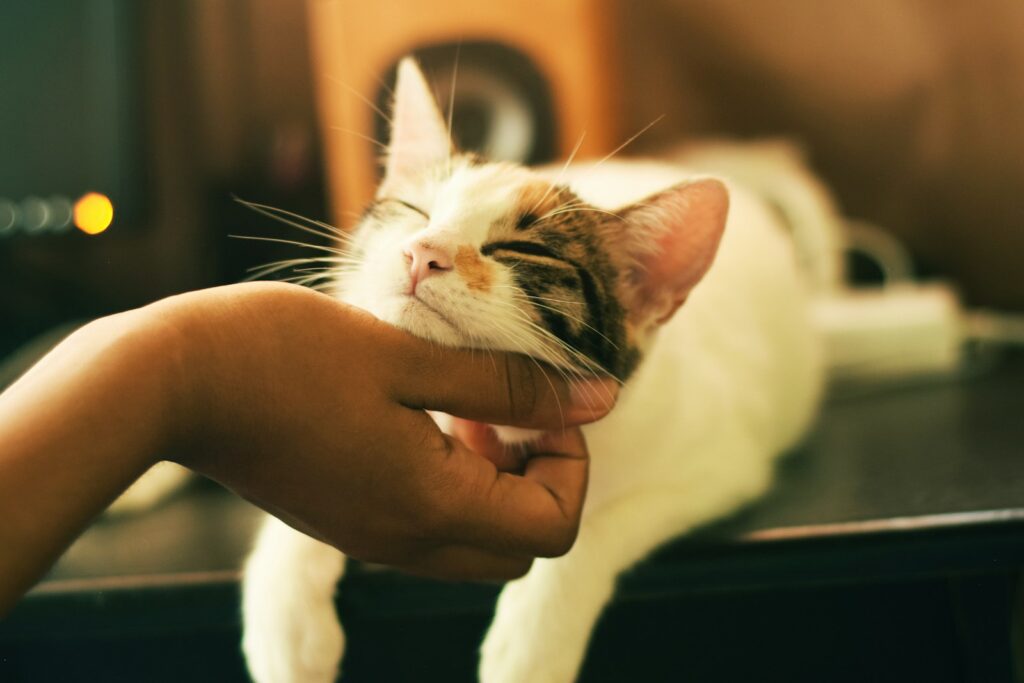
When a cat stops rubbing against your legs, purring, or curling up next to you, that distance says a lot. It’s not that they don’t love you—it’s that they’re unhappy or disconnected in a way that blocks them from feeling safe enough to be close. Losing interest in affection is one of the clearest signs your cat might be miserable, especially if they were once very loving.
They Keep Knocking Things Over
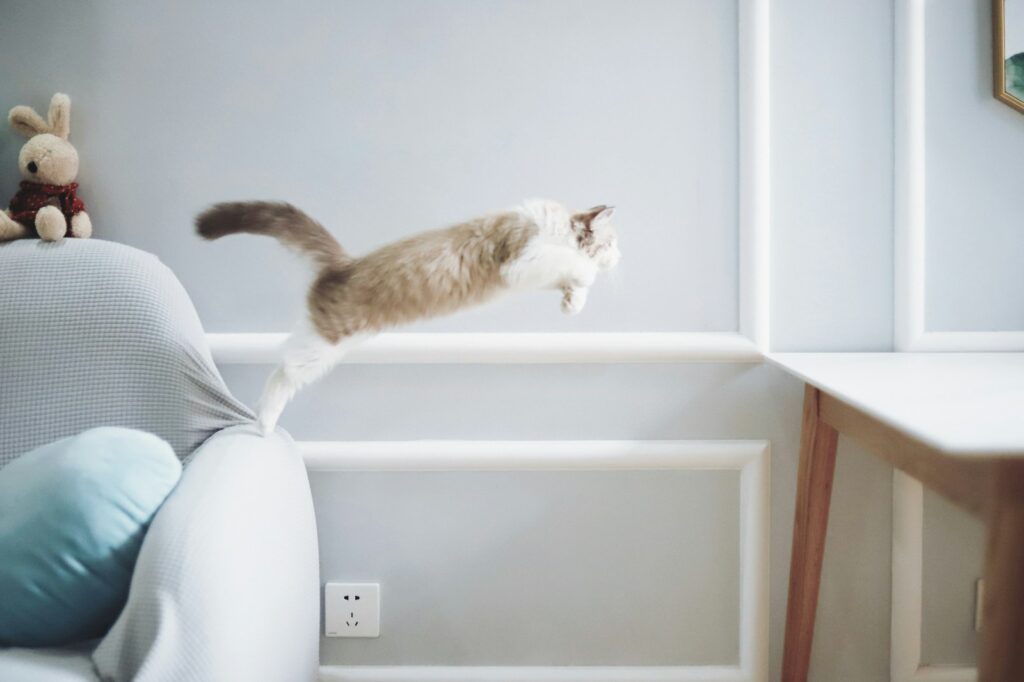
Cats love to play around, but when yours keeps knocking things off shelves or counters, they might be doing more than just having fun. They may feel bored, ignored, or frustrated, and they use this behavior to get your attention. Instead of staying quiet, they act out. This kind of behavior often hides deeper signs that your cat isn’t feeling happy or content.
They Meow in a New or Annoyed Tone
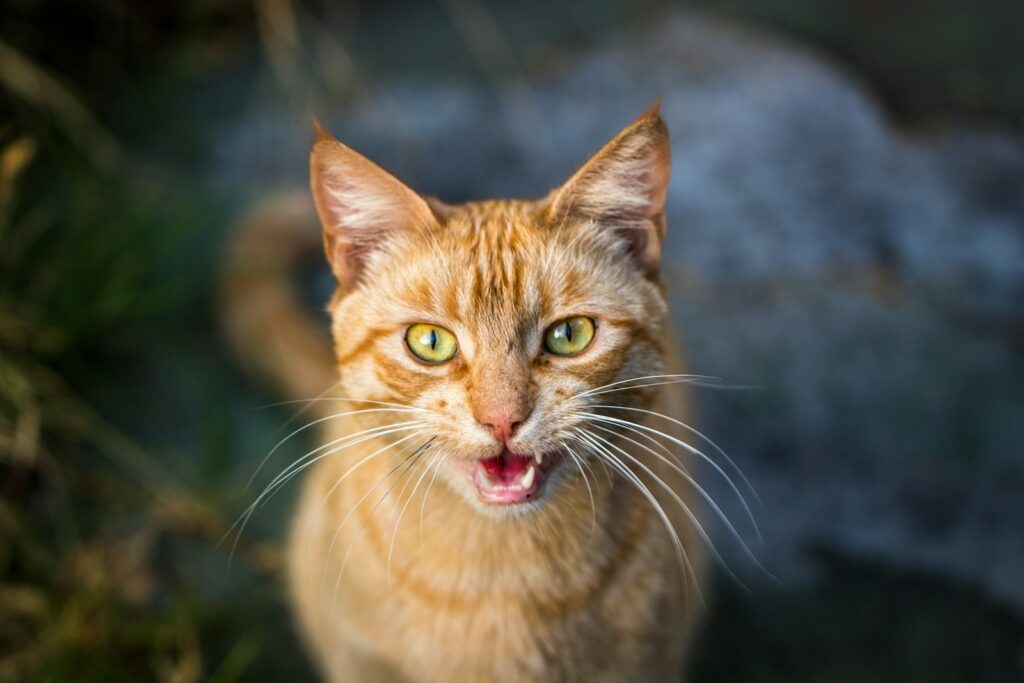
Cats have different meows for different moods. If your cat suddenly becomes more loud, whiner, or starts yowling at night, they’re likely trying to tell you something isn’t right. This kind of vocal change signals loneliness, stress, or even resentment. A kitten that feels miserable might meow just to be heard, hoping you’ll notice something in their world isn’t working for them anymore.
They Flinch When You Reach for Them
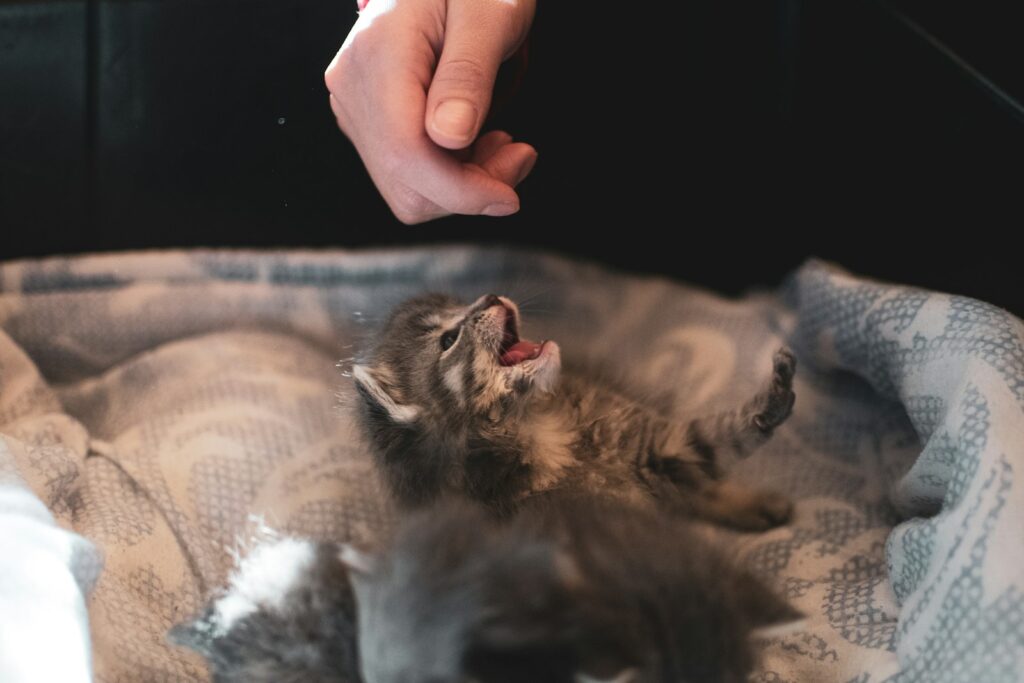
If your cat used to enjoy being a pet but now flinches, tenses up, or walks away when you reach out, it’s a sign of emotional distress. They may think that your touch brings discomfort, or they’re just not feeling safe in your presence anymore (yes, it can totally happen). Felines are sensitive to body language and tone, and it can take forever to rebuild their trust if it’s no longer there.

